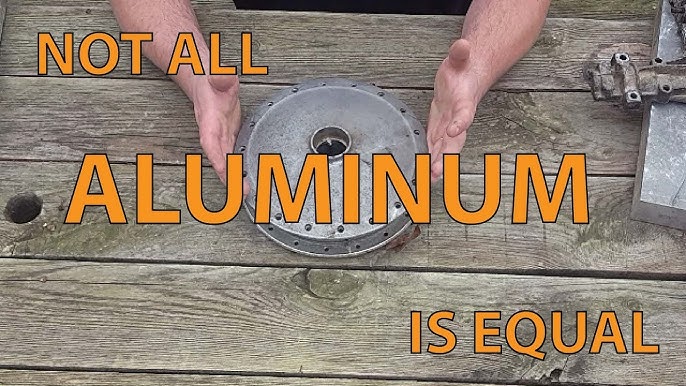See This Report about Alcast Company
See This Report about Alcast Company
Blog Article
Alcast Company - Questions
Table of ContentsThe Buzz on Alcast CompanyUnknown Facts About Alcast CompanyThe 8-Minute Rule for Alcast Company10 Easy Facts About Alcast Company ExplainedAlcast Company Fundamentals ExplainedGetting The Alcast Company To Work
Chemical Comparison of Cast Light weight aluminum Alloys Silicon promotes castability by decreasing the alloy's melting temperature and improving fluidness throughout casting. Additionally, silicon adds to the alloy's toughness and use resistance, making it beneficial in applications where longevity is crucial, such as automobile parts and engine components.It likewise boosts the machinability of the alloy, making it much easier to refine into completed products. In this way, iron contributes to the total workability of light weight aluminum alloys. Copper raises electric conductivity, making it useful in electric applications. It also improves deterioration resistance and includes to the alloy's overall toughness.
Manganese adds to the strength of aluminum alloys and improves workability (Aluminum Casting). It is generally utilized in functioned aluminum items like sheets, extrusions, and profiles. The presence of manganese aids in the alloy's formability and resistance to breaking during construction processes. Magnesium is a light-weight aspect that offers toughness and impact resistance to aluminum alloys.
Some Known Incorrect Statements About Alcast Company
It allows the manufacturing of lightweight parts with exceptional mechanical residential or commercial properties. Zinc boosts the castability of light weight aluminum alloys and helps manage the solidification process throughout casting. It improves the alloy's toughness and hardness. It is typically found in applications where intricate shapes and great information are essential, such as ornamental spreadings and specific vehicle components.

The main thermal conductivity, tensile stamina, yield stamina, and prolongation differ. Select suitable raw products according to the performance of the target product generated. Among the above alloys, A356 has the greatest thermal conductivity, and A380 and ADC12 have the lowest. The tensile limit is the opposite. A360 has the best yield strength and the highest possible elongation rate.
What Does Alcast Company Mean?

In accuracy casting, 6063 is fit for applications official website where detailed geometries and top quality surface area coatings are critical. Examples consist of telecommunication rooms, where the alloy's premium formability permits streamlined and visually pleasing layouts while preserving structural integrity. In the Lighting Solutions sector, precision-cast 6063 parts develop elegant and reliable illumination components that call for detailed forms and great thermal efficiency.
It causes a better surface coating and much better corrosion resistance in A360. In addition, the A360 displays superior prolongation, making it perfect for complex and thin-walled elements. In accuracy spreading applications, A360 is well-suited for sectors such as Customer Electronics, Telecommunication, and Power Tools. Its boosted fluidity permits elaborate, high-precision elements like mobile phone coverings and communication tool real estates.
The Single Strategy To Use For Alcast Company
Its unique properties make A360 a beneficial choice for precision casting in these markets, boosting item toughness and quality. aluminum casting company. Aluminum alloy 380, or A380, is a widely used spreading alloy with numerous distinctive attributes.
In precision casting, light weight aluminum 413 shines in the Consumer Electronic Devices and Power Equipment markets. This alloy's premium deterioration resistance makes it an outstanding selection for outdoor applications, making sure resilient, resilient items in the stated sectors.
More About Alcast Company
The aluminum alloy you choose will significantly impact both the casting procedure and the homes of the final product. Due to the fact that of this, you need to make your choice carefully and take an informed strategy.
Figuring out the most ideal light weight aluminum alloy for your application will certainly indicate considering a vast selection of characteristics. These relative alloy characteristics comply with the North American Die Casting Association's standards, and we've split them right into two classifications. The initial classification addresses alloy features that affect the manufacturing process. The 2nd covers features impacting the homes of the end product.
Alcast Company Fundamentals Explained
The alloy you choose for die casting straight influences numerous aspects of the spreading procedure, like exactly how very easy the alloy is to deal with and if it is vulnerable to casting defects. Warm cracking, also called solidification splitting, is a typical die spreading problem for aluminum alloys that can lead to internal or surface-level rips or splits.
Particular aluminum alloys are more at risk to hot fracturing than others, and your option must consider this. It can harm both the actors and the die, so you need to look for alloys with high anti-soldering properties.
Rust resistance, which is currently a notable feature of aluminum, can differ considerably from alloy to alloy and is an important characteristic to think about depending on the ecological problems your product will certainly be subjected to (aluminum casting company). Use resistance is another home generally looked for in light weight aluminum products and can set apart some alloys
Report this page